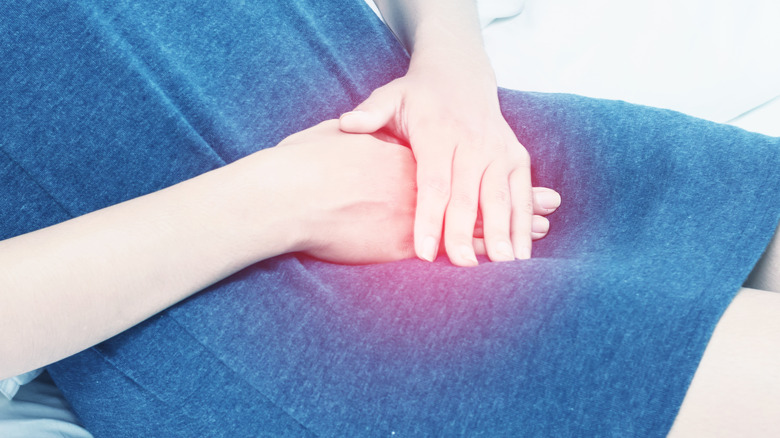Why Are People With Dementia More Prone To UTIs?
Although women are 30 times more likely to contract a urinary tract infection (UTI) than men (per U.S. Department of Health & Human Resources), people with dementia are also more prone to UTIs. A 2020 study published in the Journal of the American College of Emergency Physicians Open found that dementia patients who visit the emergency room were twice as likely to be diagnosed with a UTI than those without dementia. One-third of dementia patients were diagnosed with a UTI in the emergency room.
According to the Alzheimer's Society, some people with dementia might lose their language skills and find it difficult to tell caregivers their symptoms. Risks of UTIs can also be higher with those who have dementia because of poor bathroom hygiene. If their incontinence pads don't absorb well, the UTI-causing bacteria can spread more easily and cause infection. Because UTIs increase as mobility decreases, those with dementia who don't exercise are more prone to UTIs (per Verywell Health).
A 2016 report from the International Longevity Centre noted that people with dementia are more likely to contract a UTI because they might not recognize a glass of water and drink it when they are thirsty. Consequently, this dehydration can cause those with dementia to contract a UTI.
How harmful is an untreated UTI?
An early diagnosis of a UTI is usually treated with antibiotics. If a UTI goes untreated, it can result in bacterial infections of the kidney or move into the bloodstream. A UTI can be a significant threat to someone with dementia if it is not diagnosed early. Any infection in the body can advance the progression of dementia, according to the Alzheimer's Society. A dementia patient admitted to the hospital for a medical condition is three times more likely to die at the hospital, according to the International Longevity Centre.
Because delirium can be a symptom of a UTI (per Cedars Sinai), it can be easily mistaken for memory loss related to dementia. Instead, caregivers should look for a decline in everyday functioning, change in sleep patterns or appetite, or increased aggression or confusion (per Verywell Health).
Caregivers can also install devices in the home to monitor the behaviors of someone with dementia. A 2019 study in PLOS One investigated in-home sensors to monitor the daily routines and sleep patterns of people with dementia. The researchers used algorithms to detect any changes in these behaviors. Although these devices can't diagnose a UTI, they can provide caregivers with an early warning of possible symptoms.
What are other UTI symptoms and treatments?
According to the Mayo Clinic, you might not necessarily experience any symptoms if you have a UTI. You should see a doctor if you experience burning while urinating, a sudden need to urinate, or a low volume of urine. Other symptoms of a UTI include pressure in the lower abdomen or blood in the urine.
Contrary to popular belief, cranberry juice doesn't treat a UTI, but it might be helpful in prevention. A 2018 study in Current Pharmaceutical Biotechnology found that cranberries can prevent the UTI-causing bacteria from adhering to the urinary tract. Although the study suggested cranberry supplements could safely complement other therapies, it acknowledged that more research on more vulnerable populations was needed.
You can decrease the risk of UTIs by drinking plenty of water and avoiding holding your urine for too long. If you're sexually active, you can also prevent a UTI if you urinate before and after sex (via Healthline).



